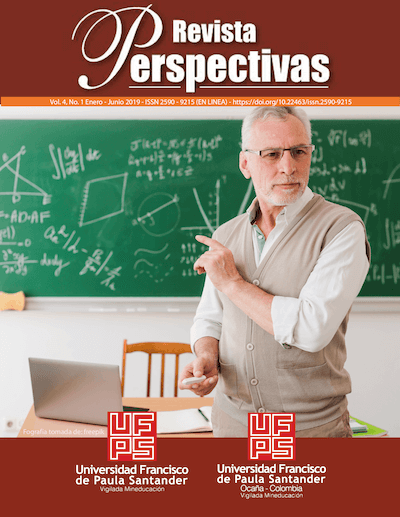La Construcción de ciudadanía en Colombia un hecho marcado por la violencia
La Construcción de ciudadanía en Colombia un hecho marcado por la violencia
Main Article Content
Abstract
The following analysis raises how the construction of citizenship in Colombia has been permeated directly by violence. The concept of modern citizenship is related to Thomas Humphrey Marshall, this British sociologist pleads for a citizenship that in addition to deciphering in a possession of rights, does so also in terms of the incorporation of the subject as a full member of a society of equals. For Marshall, the citizenship is configured through a sequential development that starts with the development of civil citizenship, as a necessary but not sufficient condition for the subsequent development of political citizenship. The political constitutions adopted by Colombia, in its passage as a nation until now, have been woven around the axis of wars and violence, events that confirm the fact that in Colombia political rights were first acquired before civil
rights ( O’Donnell, 2001). The analysis of the study on the Report on the quality of citizenship and democracy in Colombia 2018 (Pontificia Universidad Javeriana, 2018), reveals how citizenship in Colombia has been built on a weak institutional framework, with the presence of a prolonged armed conflict especially in rural areas and the association of politics with practices linked to corruption, clientelism and drug trafficking, denote the limited bonds of trust between citizens and the authorities
rights ( O’Donnell, 2001). The analysis of the study on the Report on the quality of citizenship and democracy in Colombia 2018 (Pontificia Universidad Javeriana, 2018), reveals how citizenship in Colombia has been built on a weak institutional framework, with the presence of a prolonged armed conflict especially in rural areas and the association of politics with practices linked to corruption, clientelism and drug trafficking, denote the limited bonds of trust between citizens and the authorities
Downloads
Download data is not yet available.
Article Details
References
Aguilera Peña, M. (1985). Los Comuneros Guerra Social Y Lucha Anticolonial. Bogotá: Universidad Nacional de Colombia.
Arias Murillo, F. A. (2006). Ciudadanía en el contexto democrático de América Latina. Hallazgos, 151-165.
Avila, A. (05 de Marzo de 2019). La calidad de la ciudadanía y la democracia en Colombia. El País, pág. 10.
Giraldo García, A. (2015). El concepto de Ciudadania en Colombia: Evolución Historica y aportes socioculturales. Revista de Estudiantes de Ciencia Politica 6. , 58-71.
Hernández, J. G. (19 de 04 de 2016). La Constitución de 1991: 25 años de un proyecto humanista y democrático. Razón Pública. Obtenido de https://www.razonpublica.com
Marshall, T., & Bottomore, T. (1998). Ensayo Ciudadania y Clase Social. Madrid: Alianza Editorial.
O´Donnell, G. (2001). “Reflections on Contemporary South American". Journal of Latin American Studies 33., 599-609.
Otero Cleves, A. M. (2016). Constituciones y ciudadanía en el siglo XIX colombiano. Bogotá: Subgerencia Cultural del Banco de la República - Bogotá / Biblioteca Luis Ángel Arango. Recuperado de: http://proyectos.banrepcultural.org/asamblea-nacional-constituyente/es/texto-catalogo/constituciones-y-ciudadan%C3%ADa-en-el-siglo-xix-colombiano.
Pécaut, D. (1997). "Presente pasado y futuro de la violencia". Análisis Politico, No.30. Instituto de Estudios Politicos y Relaciones Internacionales. Universidad Nacional de Colombia , 1-43.
Peralta, B. (2010). La forma en que se ejerce la ciudadania en la democracia Colombiana, socialización politica y cultura ciudadana. . Eleuthera Vol. 4, enero - diciembre., 253-290.
Pérez, J. (1994). Descentralización Educativa. Revista Iberoamericana de Educación.
Pontificia Universidad Javeriana. (5 de Marzo de 2018). Informe sobre la calidad de la ciudadanía y la democracia en Colombia 2018. Bogotá: Ediciones Berea.
Rodriguez Jimenez, P. (2010). Historia que no Cesa, LA INDEPENDENCIA DE COLOMBIA, 1780-1830. Bogotá.: Universidad del Rosario.
Uribe de Hincapié, M. T. (1998). Órdenes complejos y ciudadanías mestizas. Una mirada al caso Colombiano. Estudios Poiticos, No. 12, 25-46.
Valencia, A. (2017). Daniel Pecaut. En busca de la nación colombiana: Conversaciones con Alberto Valencia Gutierrez. Bogotá: Grupo Editorial Colombia.
Arias Murillo, F. A. (2006). Ciudadanía en el contexto democrático de América Latina. Hallazgos, 151-165.
Avila, A. (05 de Marzo de 2019). La calidad de la ciudadanía y la democracia en Colombia. El País, pág. 10.
Giraldo García, A. (2015). El concepto de Ciudadania en Colombia: Evolución Historica y aportes socioculturales. Revista de Estudiantes de Ciencia Politica 6. , 58-71.
Hernández, J. G. (19 de 04 de 2016). La Constitución de 1991: 25 años de un proyecto humanista y democrático. Razón Pública. Obtenido de https://www.razonpublica.com
Marshall, T., & Bottomore, T. (1998). Ensayo Ciudadania y Clase Social. Madrid: Alianza Editorial.
O´Donnell, G. (2001). “Reflections on Contemporary South American". Journal of Latin American Studies 33., 599-609.
Otero Cleves, A. M. (2016). Constituciones y ciudadanía en el siglo XIX colombiano. Bogotá: Subgerencia Cultural del Banco de la República - Bogotá / Biblioteca Luis Ángel Arango. Recuperado de: http://proyectos.banrepcultural.org/asamblea-nacional-constituyente/es/texto-catalogo/constituciones-y-ciudadan%C3%ADa-en-el-siglo-xix-colombiano.
Pécaut, D. (1997). "Presente pasado y futuro de la violencia". Análisis Politico, No.30. Instituto de Estudios Politicos y Relaciones Internacionales. Universidad Nacional de Colombia , 1-43.
Peralta, B. (2010). La forma en que se ejerce la ciudadania en la democracia Colombiana, socialización politica y cultura ciudadana. . Eleuthera Vol. 4, enero - diciembre., 253-290.
Pérez, J. (1994). Descentralización Educativa. Revista Iberoamericana de Educación.
Pontificia Universidad Javeriana. (5 de Marzo de 2018). Informe sobre la calidad de la ciudadanía y la democracia en Colombia 2018. Bogotá: Ediciones Berea.
Rodriguez Jimenez, P. (2010). Historia que no Cesa, LA INDEPENDENCIA DE COLOMBIA, 1780-1830. Bogotá.: Universidad del Rosario.
Uribe de Hincapié, M. T. (1998). Órdenes complejos y ciudadanías mestizas. Una mirada al caso Colombiano. Estudios Poiticos, No. 12, 25-46.
Valencia, A. (2017). Daniel Pecaut. En busca de la nación colombiana: Conversaciones con Alberto Valencia Gutierrez. Bogotá: Grupo Editorial Colombia.







